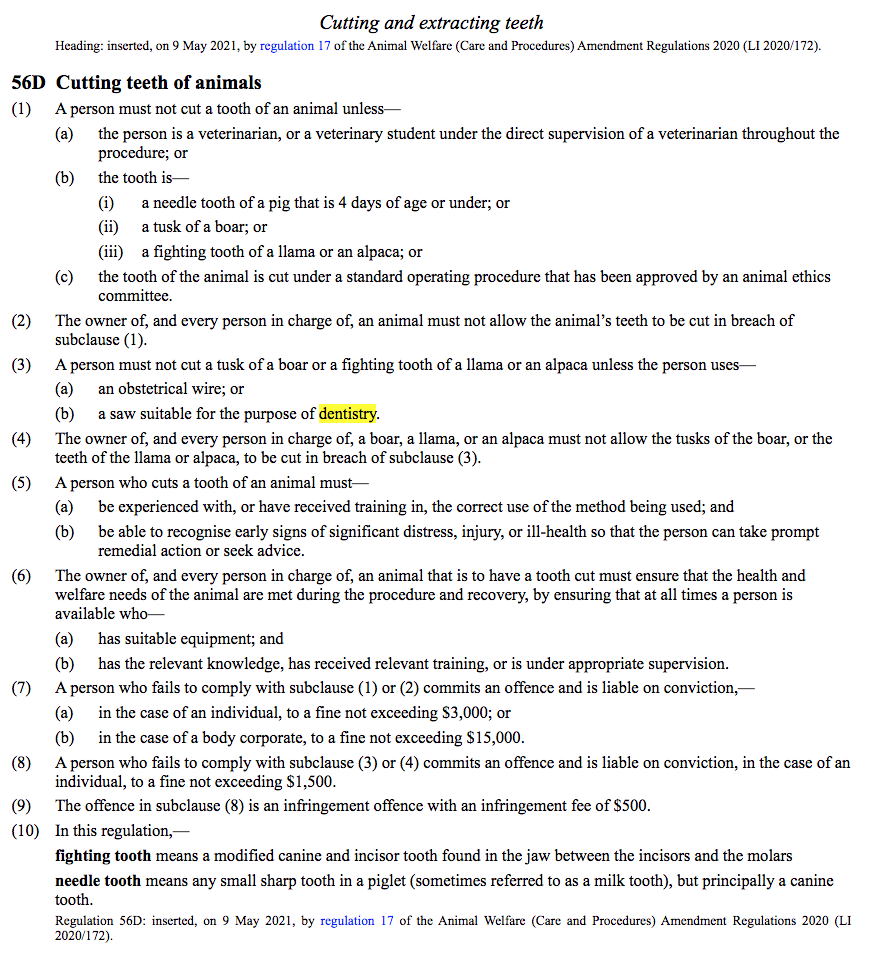Dental Issues
Your rabbit’s teeth never stop growing.
This is why an appropriate diet - which means feeding lots of fibrous food like hay and long grass, is essential to ensure good dental health. However often even with the best diet and access to tree branches etc, issues can arise due to genetic issues, cross/poor breeding etc which leads to poor conformation of the skull. This means the teeth aren’t aligned properly and cannot wear down as they should.
"Dental disease is one of the most common reasons pet rabbits present to veterinary clinics. It can produce a wide variety of clinical signs and varies in severity. Although the underlying cause of dental disease can be congenital or traumatic, husbandry is a major influence in the prevention, onset, and treatment of dental disease."
An Overview of Rabbit Dentistry - by Sarah Kolb: BAS, RVT, VTS (Exotic Companion Animals), ISU Lloyd Veterinary Medical Center, Ames, IA
"Dental problems in rabbits can be complex and result in serious conditions. This article addresses the most common issues, including signs of dental disorders; pain management (analgesia); diagnosis, treatment, and home care of dental problems, including malocclusion of incisors and of molars; euthanasia; and prevention of dental disorders."
Dental Disorders in Rabbits - by Marie Mead with Teresa Bradley Bays, DVM, CVA, DABVP (ECM), and Angela Lennox, DVM, Dipl ABVP (Avian)
"Even if your rabbit has perfectly aligned incisors (front teeth), it is wise for you to ask your rabbit-experienced veterinarian to do regular dental checkups as part of your bunny's wellness exam. Undetected dental problems in rabbits are a major cause of more serious illnesses which develop due to the pain and stress of sore teeth and jaw."
Dental Disease in Rabbits: A Simple Overview - by Dana Krempels, Ph.D.
"Some rabbits are born with bad teeth; either an underbite, an overbite, or other malformation. These rabbits need frequent dental care, and depending upon the problem, may never have a normal life. Other rabbits are born with normal teeth, but the do not develop normally. Occasionally, malocclusion can be caused by trauma, for example, being bitten on the head by a dog, or falling and breaking a tooth. But most frequently, malocclusions are the result of too little fiber in the diet."
Dental Problems in Rabbits - by Sari Kanfer, DVM
Small mammal dental disease - The unique anatomy and dentition of exotic herbivorous species can predispose them to developing dental disease
Causes for Dental Disease in Rabbits
* Inbreeding, congenital causes, e.g. malocclusion of the incisors, as seen more frequently in dwarf breeds;
* Improper wearing, due to a wrong diet, low in hay or fiber-rich food;
* Trauma, e.g. after a fall on the nose, clipping with a nail cutter;
* Overly prominent jaw (prognathism) or too short jaw (brachygnathism).
Common Dental Disorders of Rabbits - MediRabbit
Dental diseases - MediRabbit
"Teeth are a rabbit’s most famous feature but if something goes wrong it can be disastrous."
The Mechanics of Rabbit Teeth - Rabbit Welfare Assoc and Fund
These photos show spurs on the rear molars. Having your rabbit’s teeth - including the back teeth, checked yearly is essential.
"Rabbit teeth grow continuously throughout their lives. Normal chewing action wears them down just to the point that they don’t overgrow. This is one of the reasons it is important to feed your rabbit a high fiber diet.
A rabbit that has a malocclusion does not have this normal wearing action and can suffer overgrown teeth. This problem can be serious enough to inhibit the ability to eat."
Rabbit Teeth Conditions - Long Beach Animal Hospital
"Rabbits, as we know, are incessant chewers. They use their teeth not only to ingest their high-fiber diet, but also to express frustration or happiness or pain, remodel their environment, groom themselves and their companions, explore new situations and mark territory. There is a lot we can do to keep these important tools in good shape. Problems that often occur in the oral cavity include malocclusion of incisors, split or broken teeth, points or spurs on cheek teeth, foreign bodies, abscesses, tooth root and/or bone infection, and warts. Early detection is often crucial to the outcome of these problems."
Oral Health in Rabbits - by Carolynn Harvey, DVM, House Rabbit Journal
"It’s a good thing people with crooked teeth aren’t disposed of, or many of us would have been “culled” as children. Our bunnies don’t wear braces, but we will explore some dental options in this two-part article. "
When Teeth Turn to Tusks - by Dr. Susan Brown, House Rabbit Journal
Incisors after removal due to Malocclusion. Sometimes they can grow back and will need removing again.
Maloccluded incisors can be regularly trimmed by an experienced vet or they can be removed for a long term, permanent solution to the problem. However - Never trim the incisors of your rabbit yourself !!! - MediRabbit
Click here - Toofless Wonders, for more information about Malocclusion and coping with a bun with no incisors.
The Law as it stands in NZ in relation to the trimming of maloccluded incisors -
Unfortunately there are still people that claim it is safe and ok to trim maloccluded incisors - either with clippers or a dremel. Not only does this run the risk of cracking or shattering the teeth, it can also shatter the jaw.
In NZ it is illegal to trim a rabbit's teeth unless you are a Veterinarian and doing so can incur a fine of $3,000 for an individual.
Not only is trimming incisors yourself illegal, subjecting a rabbit to a conscious dental procedure - especially molar spur removal, is dangerous and inhumane.
This PDF discusses the ethics of non sedated dental procedures.
BVZS POSITION STATEMENT ON THE USE OF ANAESTHESIA IN RABBIT, GUINEA PIG AND CHINCHILLA DENTAL PROCEDURES





